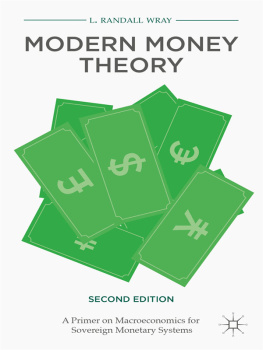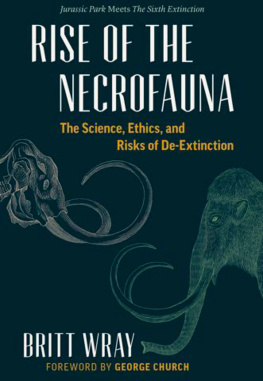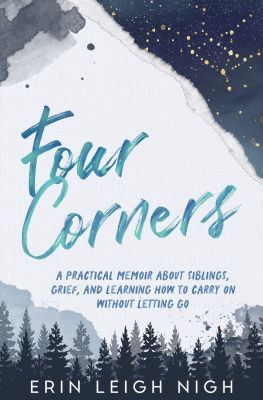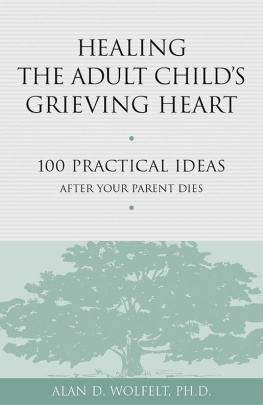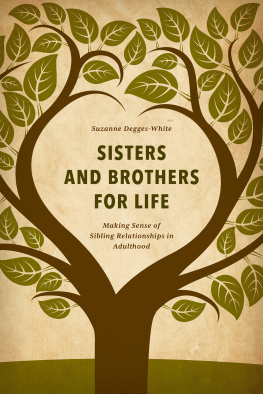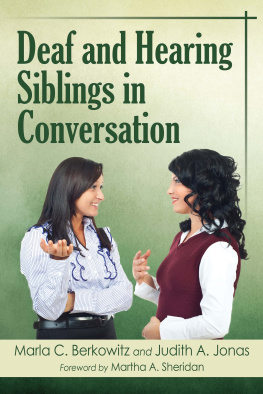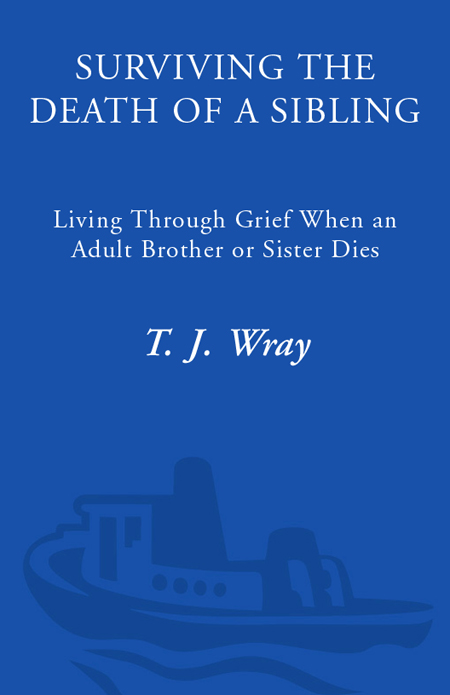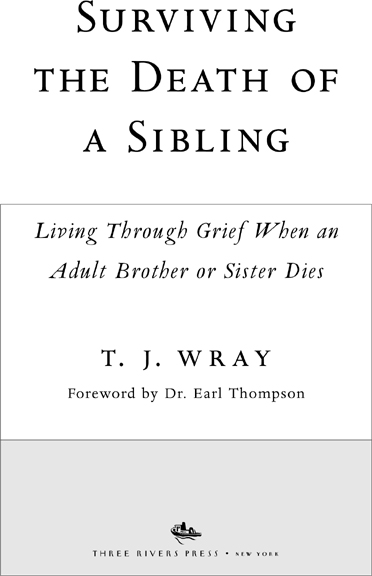Acknowledgments
I'm deeply grateful to my husband, Rob, for his love, emotional support, and editorial assistance. Thank you for always taking the time to affirm the importance of this work. I'm equally indebted to my children, Bob, Anne, and Jack, whose encouragement and hugs have sustained me throughout this process. Thank you for saying We're proud of you, Mom on those days when I needed to hear it most. Whatever else I may do in this world, it will pale in comparison to having had the honor of being your mother.
I'm also grateful to my parents, Valerie and Curt, and to my sisters, Linda, Robin, and Tracy, for their love and support, especially during that first terrible year without our beloved VJay.
I'd like to thank Walter Burr for believing in this project from the beginning and for helping me to take those first difficult steps necessary to make this book a reality. I'm also grateful to Anne McFadden, Nancy Rosenberg, Donna Bowen, Louise Doire, Regina Ballard, Jill Newman, Janet Alexander, Nancy Rockefeller, Elaine Macmillan, Jayme Hennessy, Judy Bailey, Claire Stanley, and all the other strong and beautiful women who have graced my life with love and friendship.
Thanks to my many wonderful students, friends, and colleagues at Salve Regina University. In particular, I'd like to recognize the members of the Religious Studies Department for their affirmation and support. I'm honored to be part of such a fine group of scholars and compassionate individuals. Thanks, also, to Earl Thompson and everyone at Andover Newton Theological School for their caring support and prayerful presence.
A special note of appreciation to my agent extraordinaire, Rob McQuilkin, who helped me to find my writer's voice and to my wonderfully talented editor, Orly Trieber, whose sensitivity to the material, invaluable suggestions, and friendship have been a special blessing. Thanks, also, to editorial director Becky Cabaza for her flexibility and understanding and to Betsy Rapoport for her early support of this project.
Many thanks to Laureen and Shell for their dedication to preserving the community spirit of the adult sibling grief website (www.adultsiblinggrief.com), and to my webmaster, Dave Castiglioni, for his creativity and friendship.
Finally, I'm profoundly grateful to the thousands of surviving siblings who have shared their journeys of loss with me. In particular, I'd like to recognize all those who contributed to this bookboth surviving siblings and their beloved brothers and sisters whose loss is deeply mourned. Their stories have helped me to better understand and articulate this particular type of grief and for that, I'm most humbly grateful to:
Andrea and Ed; Ann and Forest; Betty and Bill; B. G. and Allen; Brad and Bryan; Carl and Greg; Carol and Kathleen; Carolyn and Dougie, Denny; Clare and Andrew; Darcey and Donna; Dean and Stefani; Debra and Lori; Dorothy and Warren; Elise and Judith; Francesca and Larry; Frank and Marshall; Harri and Gail; Heidi and Michael; Helen and JoAnn; Jan and Eddie, Dennis, Dwayne; Janet and Jim; J. Elizabeth and Nancy; Jerry and Barbara; Jill and Debra; Judith and Suzanne; Julianne and Scott; Julie and Bill; Kathleen and Nora, Ricky; Kathryn and Scott; KathyAnne and Patsy; Kathy B. and Tommy; K. M. G. and Peter; L. B. and Paul; Linda and Pat; Linda-Lee and Danny; Lisa and Robert; Lisa-Marie and Andy; Marie and Doug, Tom; Martha and Paula, Michael, Patricia, Daniel; Mary and Kathleen; Marylin and Mary-Lee; Nadine and James; Nanci and Jeanne; Paul and Robert; Paula, Laura and Sarah; Rae Ellen and Lois; Renee and Chick; Ronna and Dana; Rosemary and Sean; Sean and Kelly; Sherry and Jimmy; Sunny and Robert; Tami and Robert; Theresa and Eddie; Tracy and Debra; and Victoria and Susan.
May their stories of loss and courage give comfort to all who mourn.
Contents
1
S HOCK :
Dealing with the News
2
D ENIAL :
This Can't Be Happening!
3
T HE R EACTIONS OF O THERS :
Why Can't You Understand?
4
S EARCHING FOR S OLITUDE :
To Go Within
5
A NGER :
How Dare This Happen!
6
G UILT , R EGRET , C ONFLICTS
Shoulda, Coulda, Woulda
7
D EPRESSION
How Low Can You Go?
8
D REAMS :
One Last Visit
9
F AITH , R ELIGION, AND S PIRITUALITY :
Where's God in All of This?
10
A CCEPTANCE :
A Search for Meaning
Foreword
It's amazing that after more than fifty years of reflection upon the psychology of bereavement, there has been almost no attention to adult sibling loss. This omission is another glaring example of disenfranchised loss as described by Kenneth E. Doka. A disenfranchised loss is one that is not or cannot be openly acknowledged, publicly mourned, or socially accepted, such as the death of a same-sex partner or prenatal death. Other times, the mourner is not socially recognizedas often happens in the case of children, the elderly, and the mentally disabled. Until this study by T. J. Wray, the major significance of adult sibling loss had been ignored, forgotten, or trivialized. She has normalized the grief of adult siblings and empowered them to trust their own intuitions and to follow their natural inclinations on their journey toward healing.
Motivated by the death of her beloved brother when he was 43, Ms. Wray has explored and clarified almost every dimension of adult sibling loss. Drawing upon her own experiences of grief and those of hundreds of other grieving adult siblings, she has given social and psychological legitimacy to this type of bereavement. Lifting up adult sibling loss as having major consequences in the life of the sibling survivors, she has brought this type of death out of the shadows into the light of healing and hope. Because of her dedication, sensitivity, and insights, those who were often the forgotten bereaved are now more likely to be remembered, acknowledged, and cared for.
Ms. Wray has written an eminently practical and down-toearth book addressed to all adults whose lives have been forever changed by the death of a brother or sister. In every chapter, she incorporates a variety of practical, proactive self-help suggestions highlighting both what helps those in grief and what generally doesn't. One suggestion I found empowering was her encouragement of mourners to recruit a grief partner to accompany the bereaved through his or her pilgrimage, someone who can offer empathy, compassion, and guidance on an ongoing basis and who can assist him or her to learn to live creatively without his or her sibling. I also appreciated her references to what she calls dismissive condolencesthose words and actions from friends and acquaintances which, in trivializing the loss, do more harm than good. She has aided all of us to be more sensitive and in tune with mourners.
Another important contribution Ms. Wray makes is taking with utmost seriousness the impact of adult sibling loss upon the griever's religious life, particularly his or her views of the mercy and justice of God. She normalizes doubt and the loss of faith as a natural symptom of adult sibling loss and asserts that this symptom is usually transient and need not permanently estrange us from cherished religious convictions. As those in grief struggle with the meanings of the death of their adult sibling, they often rethink and modify their understandings of God and develop more mature religious commitments.


